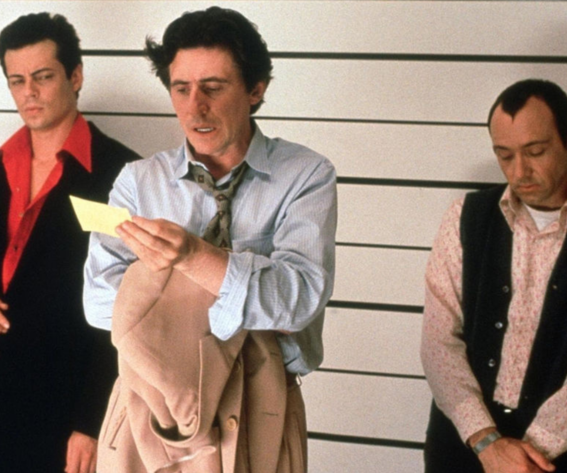Hollywood has a deep-rooted love for stories centered on strategic minds. These films captivate audiences on multiple levels—intellectually, emotionally, and even philosophically. They invite viewers to follow characters as they navigate complex challenges, making tough decisions under pressure.
The strategic theme is often a formula for critical acclaim, even if it doesn’t always equate to blockbuster-level success. Yet, many of these films become cultural touchstones, celebrated for their clever plots and captivating characters.
The Unraveling Puzzle: Inception
Christopher Nolan’s Inception (2010) is a prime example of a movie in which intellect shapes the narrative. It explores the concept of dream manipulation, with Leonardo DiCaprio’s Dom Cobb assembling a team to implant an idea deep within a target’s subconscious. Yet, this is no simple heist—each level of the dream has its own rules and challenges.
The brilliance of Inception lies in how it blurs the line between reality and illusion. As the team explores dreams, time stretches, and the distinction between real and imagined begins to dissolve. The plot’s complexity mirrors the characters’ strategy, making every twist a test of both the protagonists’ ingenuity and the audience’s perception.
Psychological Chess: The Usual Suspects
Bryan Singer’s The Usual Suspects (1995) remains a quintessential example of strategic storytelling. It begins with a routine police lineup that spirals into a labyrinth of deception, centering on the enigmatic criminal Keyser Söze.
As a group of criminals recount their tale, Kevin Spacey‘s Verbal Kint emerges as a seemingly hapless storyteller, weaving a story that keeps the detectives—and viewers—guessing.
The film thrives on its unreliable narration, using it as a strategic tool to mislead and manipulate. The narrative structure shifts, obscuring truths until the final, unforgettable twist. It transforms the audience into participants in a psychological game, where each revelation reshapes our understanding of the story.
Crime, Calculation, and Chaos: Ocean’s Eleven
Ocean’s Eleven (2001), directed by Steven Soderbergh, revitalized the heist genre with charm, wit, and meticulous planning. The movie has earned a 7.7 rating on IMDb. At its core, it’s a story about Danny Ocean (George Clooney) and his crew of specialists pulling off a high-stakes robbery in Las Vegas. Their target? The ruthless Terry Benedict owns three of the city’s most prominent casinos (Andy Garcia).
With a production budget of around $85 million, the film made a splash in its debut, grossing an estimated $38.1 million during its opening weekend. This was enough to make it the top draw at the box office, appealing not just to moviegoers but also drawing interest from actual casino enthusiasts.
The film’s allure lies in its portrayal of Vegas glamour alongside the thrill of outsmarting an impenetrable security system. Its stylish execution turned heads and boosted casino tourism, adding to the film’s cultural impact. Many fans, inspired by the glitzy portrayal of heists, flocked to casinos, eager to experience the atmosphere of high-stakes gambling.
Mind Games and Manipulation: Fight Club
David Fincher’s Fight Club (1999) digs into the mind of an insomniac, played by Edward Norton, who forms an underground fight club with the charismatic Tyler Durden (Brad Pitt). As their anarchist movement grows, the psychological complexity of their relationship comes to the forefront, revealing a twist that turns the entire narrative on its head.
The film thrives on misdirection and manipulating the protagonist’s sense of reality. It is an enduring example of how strategy isn’t confined to heists or criminal plots but can deeply affect the mind’s inner workings.
Charisma as Strategy: Catch Me If You Can
In Catch Me If You Can (2002), Steven Spielberg explores the true story of Frank Abagnale Jr., played by Leonardo DiCaprio, who successfully impersonated various professionals while eluding the FBI. His charisma and quick thinking allow him to stay one step ahead of Tom Hanks’s determined FBI agent, Carl Hanratty. Abagnale’s strategic brilliance lies not in complex planning but in his ability to adapt on the fly, turning each chase into a thrilling game of cat and mouse.
Unlike darker psychological explorations, Catch Me If You Can uses humor and charm to showcase strategy. Frank’s resourcefulness shines through in his ability to exploit the rigidity of systems and turn them to his advantage. Spielberg presents the story with a lightness that contrasts with the high-stakes nature of Frank’s deceptions, making it a narrative where charm is as potent as any master plan.
Summary
Hollywood’s love for stories about clever minds is clear. Characters who execute intricate plans or manipulate reality keep audiences engaged, offering a mix of thrills and mental challenges. Such films are more than just plot twists—they tap into the allure of outsmarting difficult situations and mastering complex environments. Viewers often find themselves captivated, pondering the films’ layers long after they end.









Leave a reply